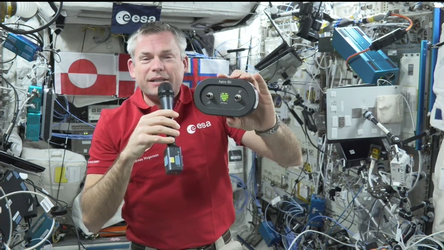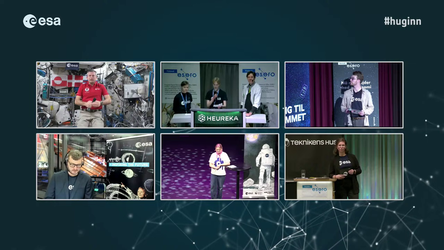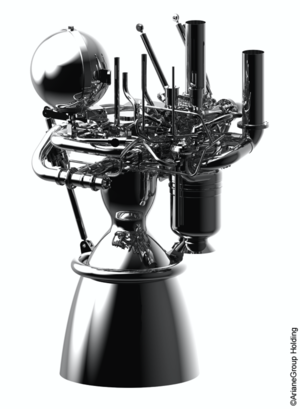Accept all cookies Accept only essential cookies See our Cookie Notice

About ESA
The European Space Agency (ESA) is Europe’s gateway to space. Its mission is to shape the development of Europe’s space capability and ensure that investment in space continues to deliver benefits to the citizens of Europe and the world.
Highlights
ESA - United space in Europe
This is ESA ESA facts Member States & Cooperating States Funding Director General Top management For Member State Delegations European vision European Space Policy ESA & EU Space Councils Responsibility & Sustainability Annual Report Calendar of meetings Corporate newsEstablishments & sites
ESA Headquarters ESA ESTEC ESA ESOC ESA ESRIN ESA EAC ESA ESAC Europe's Spaceport ESA ESEC ESA ECSAT Brussels Office Washington OfficeWorking with ESA
Business with ESA ESA Commercialisation Gateway Law at ESA Careers Cyber resilience at ESA IT at ESA Newsroom Partnerships Merchandising Licence Education Open Space Innovation Platform Integrity and Reporting Administrative Tribunal Health and SafetyMore about ESA
History ESA Historical Archives Exhibitions Publications Art & Culture ESA Merchandise Kids Diversity ESA Brand Centre ESA ChampionsLatest
Space in Member States
Find out more about space activities in our 23 Member States, and understand how ESA works together with their national agencies, institutions and organisations.
Science & Exploration
Exploring our Solar System and unlocking the secrets of the Universe
Go to topicAstronauts
Missions
Juice Euclid Webb Solar Orbiter BepiColombo Gaia ExoMars Cheops Exoplanet missions More missionsActivities
International Space Station Orion service module Gateway Concordia Caves & Pangaea BenefitsLatest
Space Safety
Protecting life and infrastructure on Earth and in orbit
Go to topicAsteroids
Asteroids and Planetary Defence Asteroid danger explained Flyeye telescope: asteroid detection Hera mission: asteroid deflection Near-Earth Object Coordination CentreSpace junk
About space debris Space debris by the numbers Space Environment Report In space refuelling, refurbishing and removingSafety from space
Clean Space ecodesign Zero Debris Technologies Space for Earth Supporting Sustainable DevelopmentLatest
Applications
Using space to benefit citizens and meet future challenges on Earth
Go to topicObserving the Earth
Observing the Earth Future EO Copernicus Meteorology Space for our climate Satellite missionsCommercialisation
ESA Commercialisation Gateway Open Space Innovation Platform Business Incubation ESA Space SolutionsLatest
Enabling & Support
Making space accessible and developing the technologies for the future
Go to topicBuilding missions
Space Engineering and Technology Test centre Laboratories Concurrent Design Facility Preparing for the future Shaping the Future Discovery and Preparation Advanced Concepts TeamSpace transportation
Space Transportation Ariane Vega Space Rider Future space transportation Boost! Europe's Spaceport Launches from Europe's Spaceport from 2012Latest
Multi-site In-Flight Call with ESA astronaut Luca Parmitano
Thank you for liking
You have already liked this page, you can only like it once!
Recording of a multi-site In-Flight Call with Luca Parmitano on board the ISS with three participating sites on ground: ESERO Germany, ESERO Italy and ESERO Spain. The call tool place on 15 October 2019. ESERO (European Space Education Resource Office) is ESA's umbrella educational project supporting formal education of the sciences (STEM – Science, Technology, Engineering and Mathematics) in European primary and secondary schools.
Question 1 (Germany): In the Biorock experiment, you work with microbes that breakdown rocks into useful minerals and metals. How do you safely perform experiments like this on the ISS where the contents could be harmful to the crew, and do you think experiments such as Biorock can help lead to the development of future life-support systems?
Question 2 (Germany): How do space missions affect you physically and psychologically and what characteristics, knowledge, and skills will astronauts need for future deep space missions?
Question 3 (Italy): For us "going beyond", means overcoming our own limitations and difficulties, and also overcoming our thoughts, or being willing to change our knowledge and our beliefs. In your work as an astronaut on the ISS, when and how have you had the opportunity to "go beyond" your experience and professionalism? Have you experienced a personal change in your beliefs or knowledge?
Question 4 (Italy): We can only imagine your emotions moving away from the Earth and living in an environment so different from what we are used to. Do you think "going beyond" means adapting to a new environment and perhaps finding a new planet to live on? How does your experience as an astronaut help you appreciate our Earth and see an opportunity to make it better?
Question 5 (Spain): On Earth, we have created remote controlled robots that can walk, roll, and even fly. What role do you think these types of advanced robots will have in the future of exploration?
Question 6 (Spain): Microbes play an important role in life on Earth. Would microbes taken from Earth need to be prepared to withstand environmental conditions in space, and specifically on other planets?
-
CREDIT
ESA -
LICENCE
ESA Standard Licence
-
Closed captions available Captions and subtitles are available (automatically generated by YouTube) - select your language using the YouTube player controls. A non-YouTube version is available using the 'download' button above.
-
Live Footage
-
-
-
-

Huginn inflight call with Andreas Mogensen and ESERO…

Inflight call with Andreas Mogensen and ESERO Denmar…

STEM careers in the classroom - Inflight call with Tim Peake

#AskLuca – sci-fi quote















 Germany
Germany
 Austria
Austria
 Belgium
Belgium
 Denmark
Denmark
 Spain
Spain
 Estonia
Estonia
 Finland
Finland
 France
France
 Greece
Greece
 Hungary
Hungary
 Ireland
Ireland
 Italy
Italy
 Luxembourg
Luxembourg
 Norway
Norway
 The Netherlands
The Netherlands
 Poland
Poland
 Portugal
Portugal
 Czechia
Czechia
 Romania
Romania
 United Kingdom
United Kingdom
 Slovenia
Slovenia
 Sweden
Sweden
 Switzerland
Switzerland


























